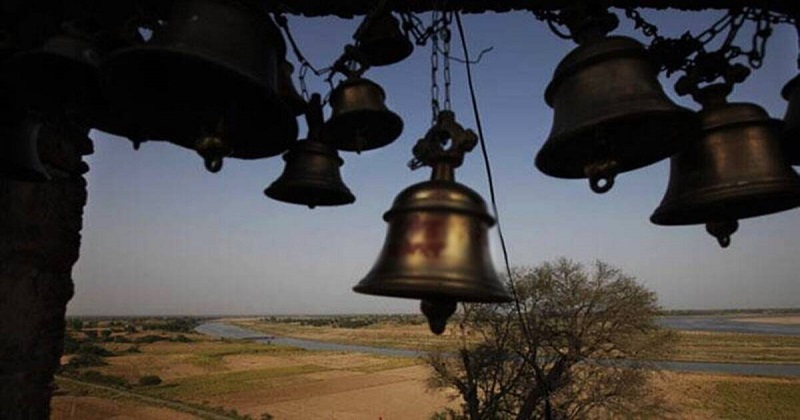
In a brutal attack against the functioning of the Evacuee Trust Property Board (ETPB) in Pakistan, the Supreme Court of Pakistan has taken the body liable for the miserable conditions and disregard that Hindu worshipping places in the nation have experienced over the years.
The statement, developed by a one-man commission, was presented to the Supreme Court on February 5. It showed a grim depiction of the Hindu community’s most revered places in the nation, devising the ancient devotion sites in a state of decay. According to the media reports, Dr. Shoaib Suddle’s one-man commission was established by the Supreme Court but it has three supporting members, Dr. Ramesh Vankwani, Saqib Jillani, and the attorney general for Pakistan, who has chosen the deputy attorney general to engage in fact-finding actions of the commission. One of the articles read, “pictures showing the dismal condition of katas raj temples chakwal, and parlahd mandir Multan- That the One-Man Commission visited the Katas Raj Mandir Chakwal, and Parlahd Mandir Multan on January 6, 2021, and January 7, 2021, respectively. The general picture of decay and obliteration of two of four most revered evacuee sites in Pakistan is evident from the photographs at Annex-E and Annex-F respectively.”

The commission members ministered the Katas Raj Mandir in Chakwal on January 6 and Prahlad Mandir in Multan on January 7 in the Punjab region. The conclusions in the report display a general picture of the “decay and obliteration” of two of the four most respected evacuee localities in Pakistan. The report said that collaborative attempts should be used to restore Terri Mandir, Katas Raj Temples, Prahlad Mandir, and Hinglaj Mandir. Out of 365 Hindu temples in Pakistan, only 13 are being handled by the board, giving the responsibility of 65 with the Hindu community, and effectively abandoning the rest 287 to the land mafias.
credits; Oneindia News
That ETPB, with its team, developed in all corners of Pakistan and large equipment, is managing 13+18= 31 worship areas out of a total of 470 (or only 6.6% of the total),” said the report. It has also demanded the Supreme Court to charge the ETPB to get connected in the reconstruction of the dishonored Terri mandir/samadhi and support with the Khyber Pakhtunkhwa government for effective implementation of the orders granted by the apex court from time to time.
In December, a temple in Terri village in Khyber Pakhtunkhwa’s Karak district was torched and crashed to the ground by members of the revolutionary Jamiat Ulema-e-Islam party. The attack on the temple brought strong objections from human rights activists and the minority Hindu community leaders, urging the Supreme Court to order its restoration. The Supreme Court in its order of January 5 designated the ETPB “to submit a detailed report of all temples, gurdwaras and other religious sites all over Pakistan which come under the purview of ETPB”.
It also said that “ETPB’s lack of interest in the more than century-old Terri Mandir – having a heavy following not only in Sind Province but worldwide and yet abandoned by ETPB, needs a bit detailed discussion.”Adding that the widespread neglect was very visible through the years and that even when pushed by the Apex Court to begin work for the renovation of Terri Mandir/Samadhi, ETPB did not provide any reply, for months together.

“That as a last resort, Pakistan Hindu Council requested the ETPB to accord them permission to start restoration work from their own sources (the ownership staying with ETPB). Yet the ETPB neither visited the place during the construction stage nor afterward. Nor did ETPB show any interest in evaluating the number of pilgrims coming to Teri from as far as Sindh by road, and hardships faced by them,” said the SC report. Calling ETPB Act “outdated”, the commission requested for measures to “make it a corporate body that can deliver its aims and objects efficiently, honestly and transparently, in confined cooperation with the evacuee communities.”
Read more; “Cure Covid-19 in just 5 days” ; Israel launches ‘miracle inhaler’
Hindus form the biggest minority community in Pakistan, the majority of them located in Sindh province. According to official calculations, 75 lakh Hindus exist in Pakistan. However, according to the community, over 90 lakh Hindus are residing in the nation, according to Pakistani media reports.

Post Your Comments